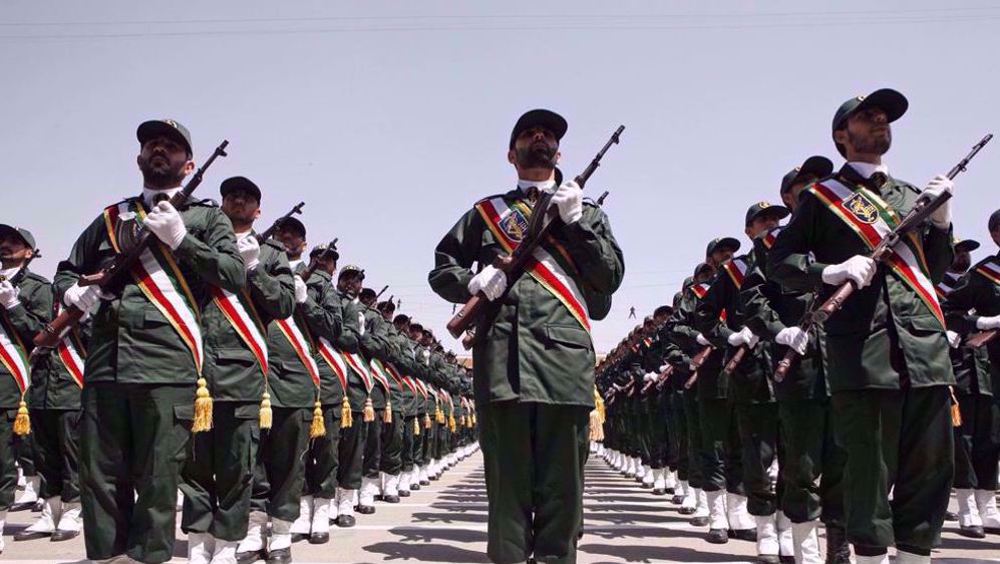The Sacred Defense Week begins on Shahrivar 31 in the Iranian calendar (September 22 this year), which is the day Iraq invaded Iran and began the imposed war on the country in 1980.
Various units of the Islamic Republic Army, Islamic Revolution Guards Corps (IRGC), Law Enforcement Police and Basij forces each year start nationwide parades in Tehran and other cities across the country to mark the Sacred Defense Week.
September 22 is considered as one of the turning points in the history of the Iranian nation.
More than four decades ago, Sadaam Hussein, the then Iraqi dictator supported by major Western and regional states, launched the massive military invasion against Iran.
Imam Khomeini once said in a historic message in this regard as following: In every day of wartime we’ve received a blessing of which we have taken advantage in every arena. We have exported our revolution to the world in the imposed war.
We have proved our state of being oppressed and the aggressors’ oppression in the war. In the war we have revealed the hidden face of the world devours, we have known our friends and enemies in the war, in the war we have come to this conclusion that we’ve got to stand on our feet, in the war we have broken the pomposity of the two super powers of east and west, in the war we have secured the roots of our fruitful Islamic revolution, we have fertilised the sense of brotherhood and patriotism in each and every one of our people in the war, in the war we showed to the world and in particular to the region’s people that the powers and super powers can be challenged for many long years.
( Sahifeh ye- Imam, vol. 21, P. 283)
Meanwhile, the Islamic Revolution Guards Corps (IRGC) has warned the enemies, particularly the United States and Israel, that any miscalculation or new act of aggression against Iran will be met with a “deadly” response.
"In the event of any new miscalculation or aggression by the enemy, the Islamic Republic of Iran will take the initiative on the battlefield with a commanding position and deliver another deadly response,” the IRGC said Sunday, marking the start of Sacred Defense Week that commemorates the anniversary of the Iraq-imposed war on Iran in the 1980s.
In a statement, the elite military force stressed that the 45th anniversary of the eight-year war comes shortly after the illegal Israeli-US aggression against Iran, an episode that has only reinforced national unity while exposing the aggressor regimes’ failure to realize their sinister goals.

Members of Iran’s Islamic Revolution Guards Corps (IRGC) in a parade. (File Photo)
"The enemies’ defeat in the two imposed wars..., and their failure in security, political, economic, psychological, and media battles aimed at creating chaos and destabilizing the country, showed that the Iranian nation, through vigilance, insight, and sacred unity, stood like a steel fortress against the enemies’ hybrid warfare and foiled their plots," it added.
The IRGC also vowed that the elite military force, alongside other units of the Iranian Armed Forces, is enhancing its combat capabilities, offensive and defensive power, and strategic capacities.
"The Islamic Republic’s experience of sacred defense both during the Iraq-imposed war and the recent Israel-US aggression shows that 'effective deterrence' stems from constant readiness, strategic and tactical innovation, operational planning in battles, as well as the continuous advancement of defensive and military technologies and systems," the statement noted.
On June 13, Israel launched a blatant and unprovoked aggression against Iran, triggering a 12-day war that killed at least 1,064 people in the country, including military commanders, nuclear scientists, and civilians.
The United States also entered the war by bombing three peaceful Iranian nuclear sites in a grave violation of international law.
In response, the Iranian Armed Forces targeted strategic sites across the occupied territories as well as the al-Udeid air base in Qatar, the largest American military base in West Asia.
On June 24, Iran, through its successful retaliatory operations against both the Israeli regime and the US, effectively halted the ongoing terrorist assault.